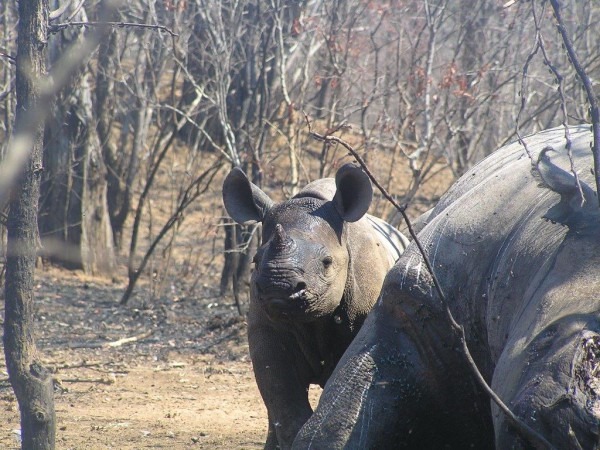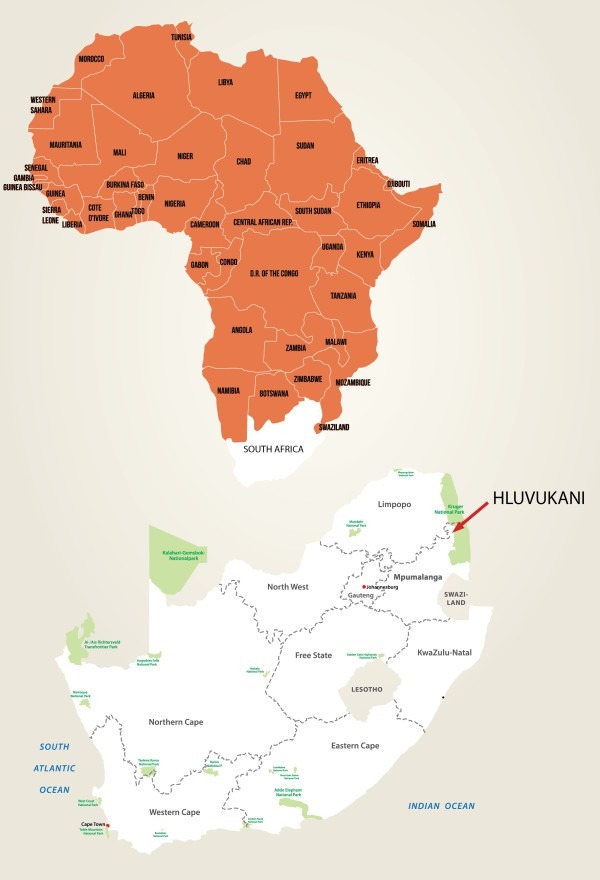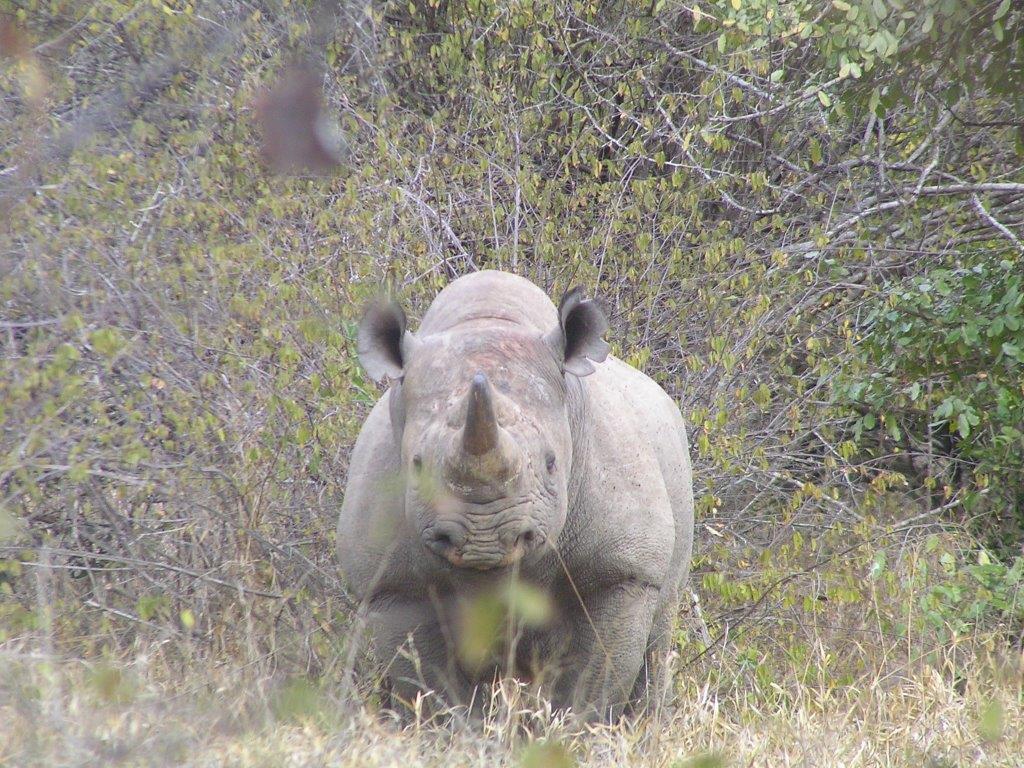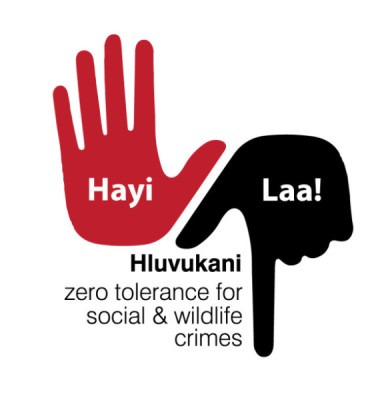Conservation programmes integrating actions directly leading to community health benefits, generating livelihoods, and/or other actions benefitting rural communities, are growing in number. A prime example is a new South African project combatting the illegal wildlife trade, which also seeks to eradicate social crimes and improve knowledge on sexual and reproductive health rights and services.

Estimates from a range of international bodies place the annual financial value of transnational organised environmental crime at between US$70 – 213 billion.[1] Clearly any criminal activity of that level has international and regional implications, but there are local community implications too. Rural communities often rely on healthy ecosystems, and the presence of the same species which are targeted by wildlife criminals, to support their livelihoods. Hluvukani, the site of a new integrated conservation and community project, is a village bordering the Manyeleti Game Reserve section of the Kruger National Park; a South African national park in which 827 rhinos were poached in 2014. For rural communities living near Kruger, one of the most obvious sources of employment is eco-tourism in the neighbouring national park.

Wildlife crime is not the only crime of concern in Hluvukani. As is common in rural South Africa, Hluvukani is also blighted by high levels of sexual and gender based violence. To combat these rural crimes, the Endangered Wildlife Trust (EWT) and the Thohoyandou Victim Empowerment Programme (TVEP) are jointly implementing a project funded by the UK Prosperity Fund, administered by the British High Commission in South Africa.
The project is an adaptation of TVEP’s “Zero Tolerance Village Alliance” (ZTVA) programme, which was designed to create community-wide attitudes of zero tolerance towards all forms of sexual assault, domestic violence, child abuse and HIV/AIDS stigma. ZTVA villages experience campaigns and community workshops on these issues led by trained community members, benefit from interventions with the police, the opening of a safe house for abuse victims and gain increased information on sexual and reproductive health rights and services. TVEP’s Programme Director, Fiona Nicholson, explained “Sexual and gender based violence is rife in rural South Africa and data from existing ZTVA villages shows that after project completion there is an increase in reporting of human rights abuses of greater than 500%, with ZTVA village residents over ten times more likely to report crimes than the regional average.”

Given the ZTVA approach has led to such substantial increases in reporting of social crimes, TVEP and the EWT anticipate that integrating the EWT’s community-based actions addressing wildlife crime will also lead to increased reporting of wildlife crimes, with subsequent long term reductions in commission of wildlife crimes. The project is called “Hayi Laa!” which means “Not here!” in the local Shangaan language and includes five days of workshops on social and wildlife crime themes for six hundred adults and age appropriate lessons for a further two hundred school learners. The aim is to empower community members to know and exercise their rights and responsibilities.
A further project element is the provision of sexual and reproductive health information in the workshops, to empower women to be able to determine the number and timing of their pregnancies. By avoiding unwanted pregnancies women will be likely to have fewer and healthier children, benefiting family health and reducing long term environmental pressures.
Reduced wildlife crime, as well as reduced social crime, has direct community benefits. Kirsty Brebner of the EWT said, “tourists visit the Kruger National Park in the hope of seeing the so-called Big Five [lion, leopard, elephant, buffalo and rhino] and not the Big Four; the survival of rhino is not only of critical importance for biodiversity, but also to sustain jobs in the wildlife tourism sector”. Two thirds of the rhinos poached in South Africa in 2014 were poached in Kruger, where many of Hluvukani’s community members are employed. The EWT and TVEP will work with the lodges in the Manyeleti Game Reserve to promote Hluvukani (and its zero tolerance commitment of social and wildlife crimes) to their guests.
Funding has been secured for a year’s work and includes comprehensive monitoring and evaluation activities, the results of which will be reported back on this website. The partners anticipate that, at project completion, they will be able to demonstrate significant community-wide attitude changes on project themes directly leading to increased reporting of and long term reductions in both social and wildlife crimes and hope the Hayi Laa! model can be replicated at similar sites elsewhere in South Africa.
[1] The Environmental Crime Crisis – Threats to Sustainable Development from Illegal Exploitation and Trade in Wildlife and Forest Resources. UN Environment Programme and GRID-Arendal, Nairobi and Arendal, UNEP and Interpol.
David Johnson has spent the last three years researching the impacts on people and our planet of human population growth, population dynamics and our increasing (and all too often unequal) levels of consumption. One of his aims is to establish integrated development projects bringing together specialist NGOs in development, conservation, sexual and reproductive health and women’s rights. He hopes Hayi Laa! will be the first of many such projects. You can read more on his website: www.toomuchtoomany.co.za and follow him on Twitter: @DavidJohnsonSA
MAHB-UTS Blogs are a joint venture between the University of Technology Sydney and the Millennium Alliance for Humanity and the Biosphere. Questions should be directed to joan@mahbonline.org
Edited October 22, 2015: The project discussed above is now being managed by the Population and Sustainability Network, you can learn more about PSN through the group’s MAHB Node.
The views and opinions expressed through the MAHB Website are those of the contributing authors and do not necessarily reflect an official position of the MAHB. The MAHB aims to share a range of perspectives and welcomes the discussions that they prompt.
